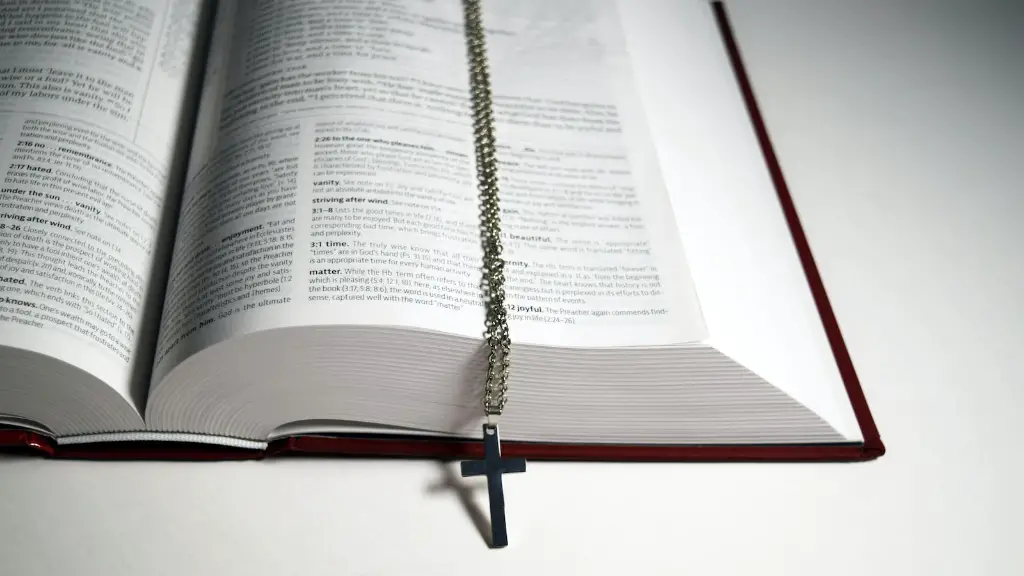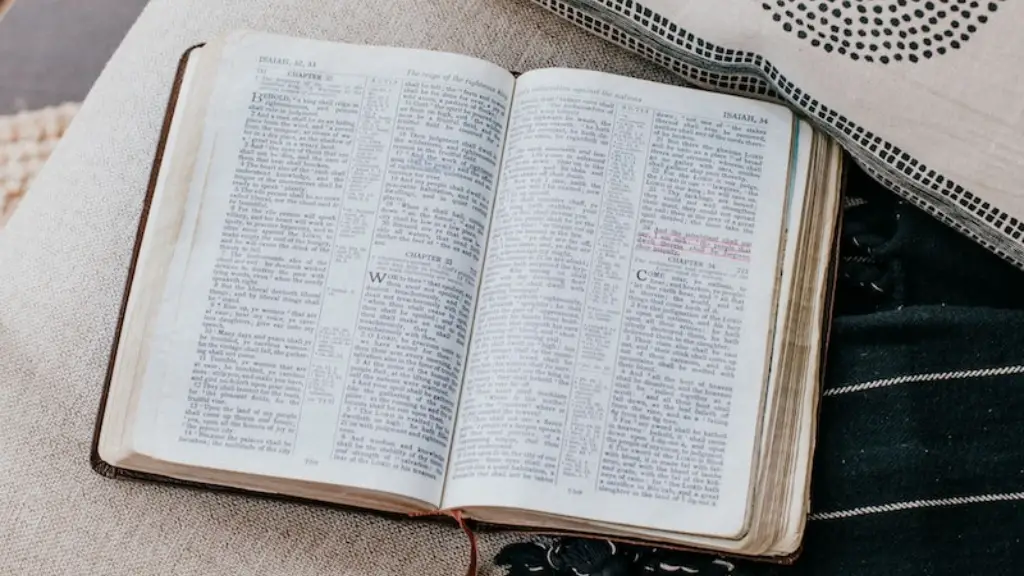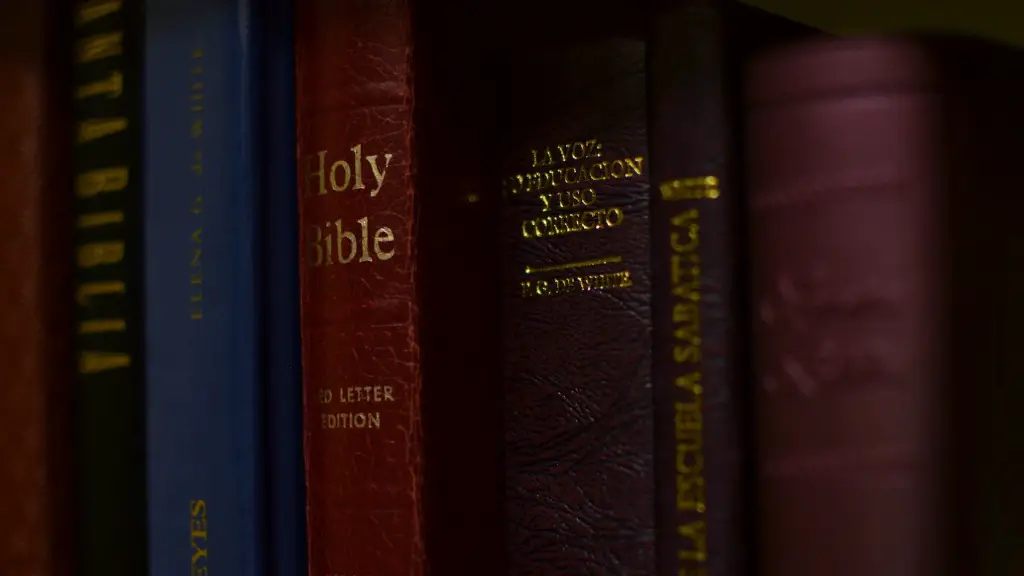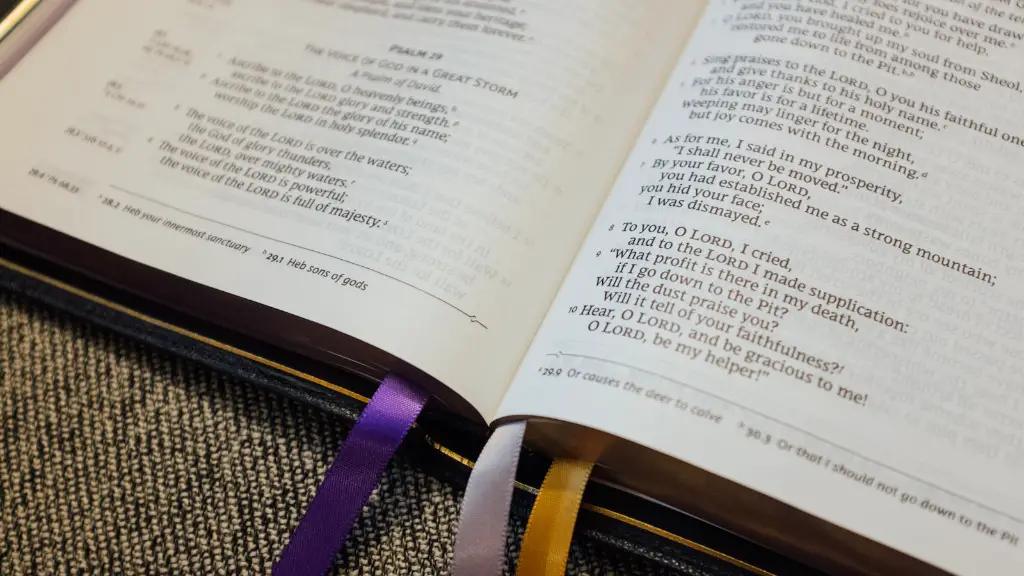The Bible is full of stories of people who doubted. From Moses Doubting he was good enough, to Joseph’s brothers doubting he could change, even Jesus’ disciples doubted him on many occasions. What does the Bible say about all this doubt?
The Bible actually has a lot to say about doubting. In fact, in Matthew 14:31, when Peter began to doubt and sink into the water, Jesus rebuked him saying, “O ye of little faith, wherefore didst thou doubt?” Doubting can lead us astray from God’s path for our lives. It can prevent us from fully trusting in Him. Doubting can also be a form of unbelief. Hebrews 11:6 tells us that, “without faith it is impossible to please Him.” So, if we want to please God, we need to have faith and avoid doubting His word or His promises.
Is it OK for Christians to have doubts?
It is perfectly normal to have questions about the gospel and even to experience doubt from time to time. In fact, pondering your unanswered questions can often be healthy if it motivates you to sincerely seek greater knowledge and truth. However, it is important to remember that faith is ultimately a decision to trust in God, even when we don’t have all the answers. As we continue to grow in our faith, our questions and doubts will likely lessen.
There are two types of doubt – unbelieving and believing. Unbelieving doubt questions God’s character because He is beyond our understanding. Believing doubt trusts in God’s character because He is beyond our understanding. Doubt is simply not knowing something, not being sure. We all experience doubt at some point in our lives. The key is to not let it take over and prevent us from moving forward.
What Bible verse to read when in doubt
Trust is the foundation of any relationship, and our relationship with the Lord is no different. We are called to trust Him with all our heart, which means surrendering our whole lives to Him. This doesn’t mean that we will always understand His ways, but it does mean that we can trust Him to lead us in the right path. When we submit to His will, He will make our paths straight.
Dear God,
Please give me the strength to face whatever challenges come my way. I know that You will be with me always, and I am grateful for that. Amen.
Is doubt a part of faith?
Doubts are a natural part of believing. They don’t mean that you don’t have faith, but rather that you are questioning and exploring your faith. This is a good thing! It allows you to grow in your understanding and to deepen your faith.
Paul Tillich was a Christian theologian who understood the importance of doubt. He said, “Doubt isn’t the opposite of faith; it is an element of faith.” In other words, doubt is part of the process of faith.
For example, in the Bible we read about Abraham. He was a man of great faith, but even he had doubts. He doubted whether God was really going to make good on his promise to give him and Sarah a son. But through his doubts, Abraham’s faith was strengthened.
So don’t be afraid of doubts. Embrace them as part of your journey of faith.
It is essential to have doubts in your faith, because it is through doubt that you can grow stronger in your faith. By doubting, you are questioning what you believe in and testing your own beliefs. This process of questioning and testing will only make your faith stronger in the end.
What is the root of doubt?
Doubt can be a useful tool when making decisions. It allows us to pause and consider all the options before making a choice. However, too much doubt can lead to indecision and paralysis. If you find yourself doubting everything, it may be helpful to talk to someone you trust to get a different perspective.
Self-doubt is a negative state of mind that can prevent you from achieving your goals and reaching your full potential. If you find yourself doubting yourself, it’s important to take steps to overcome this mindset. Here are some good habits to keep in mind to stop doubting yourself:
Practice self-compassion: Make sure to be kind to yourself and cut yourself some slack. Remember that you are human and mistakes are part of life.
Think back to your past achievements: When you start doubting yourself, take a step back and think about all the things you have accomplished in your life. This will help remind you of your capabilities.
Try not to compare yourself to others: It’s easy to fall into the trap of comparing ourselves to others, but this is only going to make you feel worse about yourself. Everyone is on their own journey and you are exactly where you are meant to be.
Spend your time with supportive people: Find people in your life who make you feel good about yourself and who will support you in your endeavors. These people will help build you up and remind you of your worth.
Remember, you are your biggest inner critic: A lot of the time, the voices in our
Who in the Bible had doubts
I think it’s safe to say that doubt is a common human experience. It’s interesting to see that even some of the most famous Biblical figures struggled with it. I think it can be reassuring to know that even Jesus’ own disciples doubted him at times. Doubt is something that we all go through, but it’s important to remember that faith can help us overcome it.
When you’re struggling with faith doubts, it can be helpful to take some time to evaluate your beliefs and search for the root of your doubts. Additionally, it can be helpful to identify any alternative beliefs that you may be considering, and to honestly assess your expectations for Christianity. Finally, don’t forget to pray and to seek guidance from God.
Is doubt the beginning of wisdom?
Descartes argues that the only way to gain knowledge is through doubt. He states that without doubt, we would never question our beliefs and therefore never learn anything new. Doubt is essential to the acquisition of wisdom because it allows us to examine our beliefs and find out which ones are true.
There are many ways to overcome confusion, but here are three:
1. Read, and meditate on the Bible. Make time each day to read what God says about you, even if you start with just one verse!
2. Trust God in prayer and commit your situation to Him.
3. Meet & pray with a friend who you can trust and who you know offers good advice.
What are the three levels of doubt
In the First Meditation, Rene Descartes doubts everything that he believes in order to find a firm foundation for knowledge. He starts with perceptual illusions, which show that our senses can sometimes deceive us. He then moves on to the dream problem, which demonstrates that our dreams can sometimes be indistinguishable from reality. Lastly, he considers the possibility of a deceiving God, which would mean that everything we believe could be false.
There are 10 major causes of doubt. They are:
1) Doubt of what others may think of your new, bold future plans.
2) Doubt of whether you have what it takes to do what you truly want.
3) Doubt about whether you can overcome your past.
4) Doubt that you are worthy of success.
5) Doubt that you are capable of making your dreams a reality.
6) Doubt that you will be able to handle the challenges that come with success.
7) Doubt that you deserve to be happy.
8) Doubt that you can be happy without success.
9) Doubt that you are good enough.
10) Doubt that you can change.
Is doubt a form of fear?
Doubt can be our worst enemy because it is the one hardest to see. When we are facing a threat, doubt can distract and weaken our spirit, causing us to defeat. We must be vigilant in spotting doubt in ourselves and others, and work to overcome it.
Certainty has always been valued over doubt, but in today’s world, it’s more important than ever to be open to new ideas and to think flexibly. Doubt makes us explore, listen and reinvent, while certainty makes us dig in and preach. Giving up certainty is a tough ask, but it’s essential if we want to continue to progress as a society.
What is the root cause of unbelief
The root of unbelief is that on their own, people don’t want to believe that the Christian message is true. And any claims that other reasons are what lie at the root of unbelief are forms of self-delusion.
The cross is essential to Christian faith because it is through Christ’s sacrifice on the cross that we are forgiven and given eternal life. Without the cross, our faith would be dead. Christ’s power is made perfect in our weakness, and it is through our weakness that He is able to work in our lives and save us. Our doubt opens us up to His strength and allows us to receive His grace.
Final Words
The Bible says that it is normal for humans to have doubts. In fact, Jesus had doubts about his mission on earth. However, what is important is not to allow doubts to control our lives. We should instead focus on our faith and trust in God.
The Bible is clear that doubt is a normal part of the human experience. In fact, Doubting Thomas is one of the most well-known biblical stories precisely because he doubtingly required physical proof of Jesus’ Resurrection. However, while doubt is normal, the Bible also teaches that doubt should not lead to unbelief. Unbelief leads to spiritual death, but doubt can lead to growth if we turn to God in humility, asking for His help.





